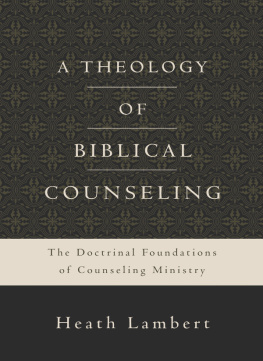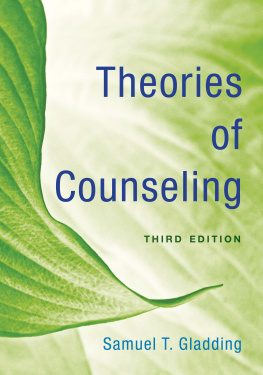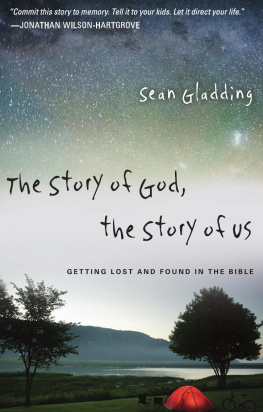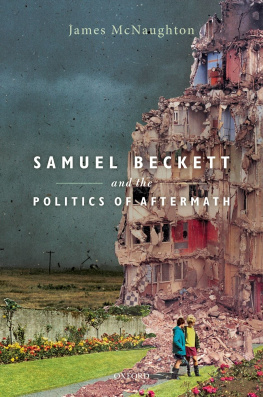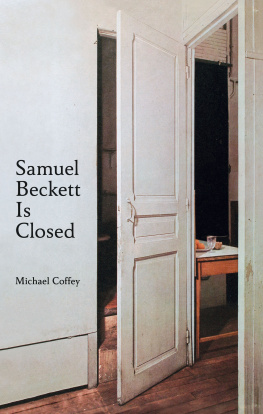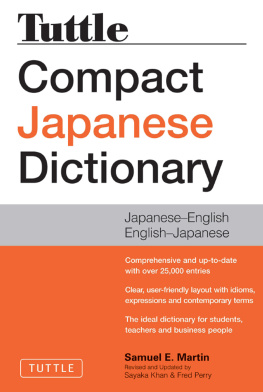Samuel T. Gladding - The Counseling Dictionary
Here you can read online Samuel T. Gladding - The Counseling Dictionary full text of the book (entire story) in english for free. Download pdf and epub, get meaning, cover and reviews about this ebook. year: 2017, genre: Home and family. Description of the work, (preface) as well as reviews are available. Best literature library LitArk.com created for fans of good reading and offers a wide selection of genres:
Romance novel
Science fiction
Adventure
Detective
Science
History
Home and family
Prose
Art
Politics
Computer
Non-fiction
Religion
Business
Children
Humor
Choose a favorite category and find really read worthwhile books. Enjoy immersion in the world of imagination, feel the emotions of the characters or learn something new for yourself, make an fascinating discovery.

- Book:The Counseling Dictionary
- Author:
- Genre:
- Year:2017
- Rating:3 / 5
- Favourites:Add to favourites
- Your mark:
- 60
- 1
- 2
- 3
- 4
- 5
The Counseling Dictionary: summary, description and annotation
We offer to read an annotation, description, summary or preface (depends on what the author of the book "The Counseling Dictionary" wrote himself). If you haven't found the necessary information about the book — write in the comments, we will try to find it.
The Counseling Dictionary — read online for free the complete book (whole text) full work
Below is the text of the book, divided by pages. System saving the place of the last page read, allows you to conveniently read the book "The Counseling Dictionary" online for free, without having to search again every time where you left off. Put a bookmark, and you can go to the page where you finished reading at any time.
Font size:
Interval:
Bookmark:
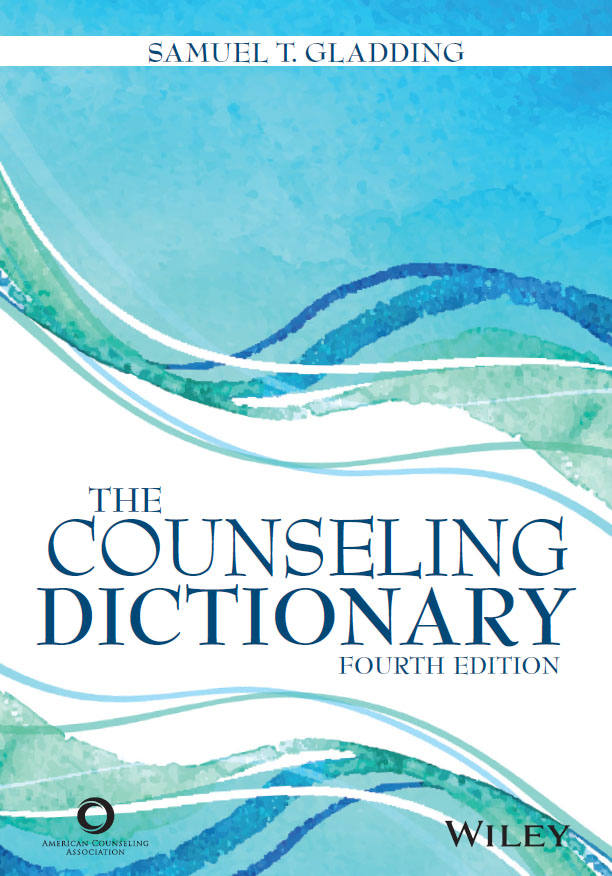
Copyright 2018 by the American Counseling Association. All rights reserved. Printed in the United States of America. Except as permitted under the United States Copyright Act of 1976, no part of this publication may be reproduced or distributed in any form or by any means, or stored in a database or retrieval system, without the prior written permission of the publisher.
American Counseling Association
6101 Stevenson Avenue, Suite 600
Alexandria, VA 22304
Associate Publisher Carolyn C. Baker
Digital and Print Development Editor Nancy Driver
Senior Production Manager Bonny E. Gaston
Production Coordinator Karen Thompson
COPY EDITor Beth Ciha
Cover and text design by Bonny E. Gaston
Library of Congress Cataloging in Publication Data
Names: Gladding, Samuel T., author.
Title: The counseling dictionary / SAMUEL T. GLADDING, Wake Forest University.
Description: Fourth Edition. | Alexandria, VA : American Counseling Association, [2017] | Revised edition of the author's The counseling dictionary, c2011. | Includes bibliographical references and index.
Identifiers: LCCN 2017015985 | ISBN 9781556203725 (pbk. : alk. paper)
Subjects: LCSH: CounselingDictionaries. | PsychotherapyDictionaries.
Classification: LCC BF637.C6 G5332 2017 | DDC 361/.0603dc23 LC record available at https://lccn.loc.gov/2017015985
To my graduate students in counseling at Fairfield University, the University of Alabama at Birmingham, and Wake Forest University, who have taught me to be precise and concise with my words and inspired me to be a better counselor.
Behind every book there is a story. This dictionary is no exception. The story is simple. Some years ago, one of my students asked me whether I could give her a concise definition of a word often used in counseling. I thought I could provide a definition, but I told her I would consult the glossary of a leading book in the field to make sure the definition was concise. To my surprise, that book did not have a glossary. No problem, I thought. I'll go to another leading book in the field. However, that book had a glossary but did not include the word for which I was looking. Well, surely another major book in the field will have what I want, I thought. I was wrong again!
Not known to give up easily, I decided I would find a dictionary of counseling terms. Surely, going to an authoritative source would solve my problem and save me time. Well, I was incorrect once more. I found a lot of dictionaries for a number of professions, but when it came to counseling, I could locate only three. One had been published in the 1960s, one in the early 1980s, and the most recent one (from the 1990s) contained fewer than 300 terms and not the one I wanted. Wow! The task that I expected would be simple had turned out to be anything but that.
Thus, the idea of my writing a dictionary of counseling was born. The purpose of this book is threefold. First, it is aimed at students and new professionals who are entering or have entered the profession of counseling and wish to better learn the language that goes with it. Second, this dictionary is intended to serve professors and practicing counselors as a quick reference source to commonly used counseling terms and historical contributors to the field. Third, the dictionary is meant to be a resource for the public to help laypersons discern what counselors and other helping professionals mean when they use specific words or refer to someone who influenced the development of counseling.
It is my hope that you will both enjoy as well as benefit from this reference. If so, your frustration in finding concise descriptors of counseling terms may be alleviated. More important, your understanding of counseling and related mental health fields may be enhanced.
A total of 342 new terms have been added to this edition of The Counseling Dictionary, thus providing basic information on almost 4,000 words and abbreviations often used or referred to in the profession of counseling. Moreover, new examples have been provided to help you as a reader better understand the definitions given. Many words that are defined in the dictionary are italicized when included in the definition of another term. Thus, if you do not understand an italicized word in a definition, it is easy to find an explanation of that word within the confines of the text. This dictionary also contains updated URLs of organizations and associations that can enrich your understanding in selected areas of counseling.
Another new feature of this edition is that more names of prominent professionals who have influenced the development of counseling have been added. They are found in Appendix A. Many of the names in this appendix are of historical figures who influenced counseling and other helping professions, but other names are of contemporary counselors who have made and are still making contributions to the field. Because of the political sensitivity involved with being included in or excluded from a work of this nature, I have purposefully tried to limit the number of my contemporaries listed here. Thus, with a few exceptions, no one still living who is referred to in these pages is younger than 60 years of age, and a great many of them are retired or are historical.
Another feature of this edition of The Counseling Dictionary, found in Appendix B, is an updated, brief version of major events in the development of counseling since the turn of the 20th century. More recent events, such as those that have occurred since 2010, have been added. A final new feature of this book is the inclusion of an expanded and updated list of self-help organizations in the United States in Appendix C. Often professionals wish to make referrals or to find information about such groups. It is sometimes difficult to locate self-help associations, even through an Internet search. The list in this dictionary does not include all self-help groups in the United States because there are dozens of them. However, this appendix gives a representative sample of self-help groups from A (Adult Children of Alcoholics World Service Organization) to W (Workaholics Anonymous).
Overall, this fourth edition of The Counseling Dictionary is the most thorough yet. It should be useful to both students in and new graduates of counseling programs as well as more experienced professionals. It is apolitical and attempts only to supply information on and related to the profession of counseling. This brief volume will be enough for many readers. However, if it is not, resources such as TheACA Encyclopedia of Counseling (American Counseling Association, 2009 World Service Organization) can provide more information.
In writing this dictionary, I am indebted to my teachers, colleagues, students, and clients, both past and present. They are too numerous to name individually. However, some have been especially helpful in recent years. Anita Hughes, my administrative assistant when I was in the Provost Office at Wake Forest University, read the initial drafts of this text and offered invaluable input and suggestions. Also providing me with excellent preliminary feedback were my colleagues in the Department of Counseling at Wake Forest Universityespecially Donna Henderson and Pamela Karrand my graduate students, Mike Ryan, Paige Bentley, Dan Barnhart, Anne McMullan, and Katie Anne Burt. Outside reviewers for this dictionary included Scott E. Gillig, Barry University; Jerry A. Mobley, Fort Valley State University; Jeannette Seaberry, University of Nebraska, Omaha; H. Lori Schnieders, Vanderbilt University; and Stephen R. Wester, University of Wisconsin, Milwaukee.
Next pageFont size:
Interval:
Bookmark:
Similar books «The Counseling Dictionary»
Look at similar books to The Counseling Dictionary. We have selected literature similar in name and meaning in the hope of providing readers with more options to find new, interesting, not yet read works.
Discussion, reviews of the book The Counseling Dictionary and just readers' own opinions. Leave your comments, write what you think about the work, its meaning or the main characters. Specify what exactly you liked and what you didn't like, and why you think so.

